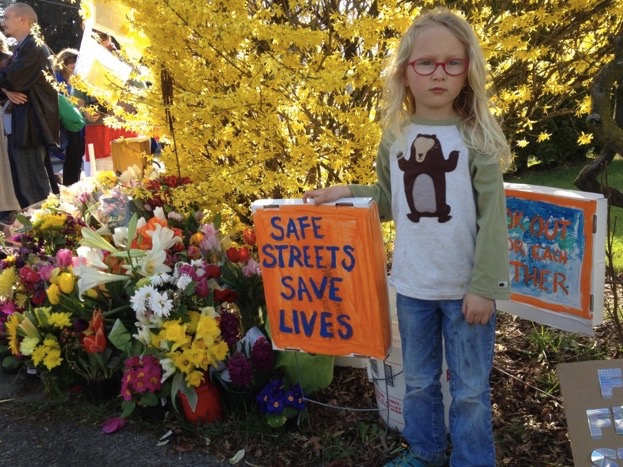Last year was the deadliest year on American streets in nearly a decade. The U.S. was already lagging far behind the global leaders in traffic safety, and now the gap is even wider.
A Washington Post editorial last week blamed the horrific death toll -- more than 40,000 lives lost in a single year -- on apathetic state governments. But progress has been made at the city level, where some local governments have managed to buck the trend.
Now U.S. Representative Earl Blumenauer has introduced legislation in the House that would help cities establish Vision Zero policies aimed at eliminating traffic deaths, reports Jonathan Maus at Bike Portland. “Something has to change," Blumenauer said. "We have to do better and finally treat this public health crisis."
Maus reports:
The “Vision Zero Act of 2017” was co-introduced with Representative Vern Buchanan, a Republican from Florida.
The bill is split into two sections: One to fund the creation of Vision Zero plans, and the other that would fund the implementation of those plans. $5 million would be set aside each year for the next five years (starting in 2018) for the planning grants and $25 million a year for the implementation grants, which could be split by up to five different entities (any political subdivision of a state is eligible, including; towns, cities, counties, and so on).
The timing of this bill is no accident. One week from today, hundreds of bike advocates from across the country will be on Capitol Hill as part of the National Bike Summit’s Lobby Day. The Vision Zero Act is one of three official “asks” the Summit’s organizers, the League of American Bicyclists, will encourage attendees to talk with their Senators and House Representatives about.
Given the current state of Congress and the White House, of course, the bill has little chance of passage. Maus reports that Blumenauer introduced a similar bill in 2015, and despite 23 sponsors -- including one Republican -- it failed to advance out of committee.
More recommended reading today: Columbus Underground shares a new documentary chronicling an important transit-related civil rights case in the town of Beavercreek, Ohio. And Sarah Jo Peterson maps changes in the number of single people living car-free and with more than one car.






